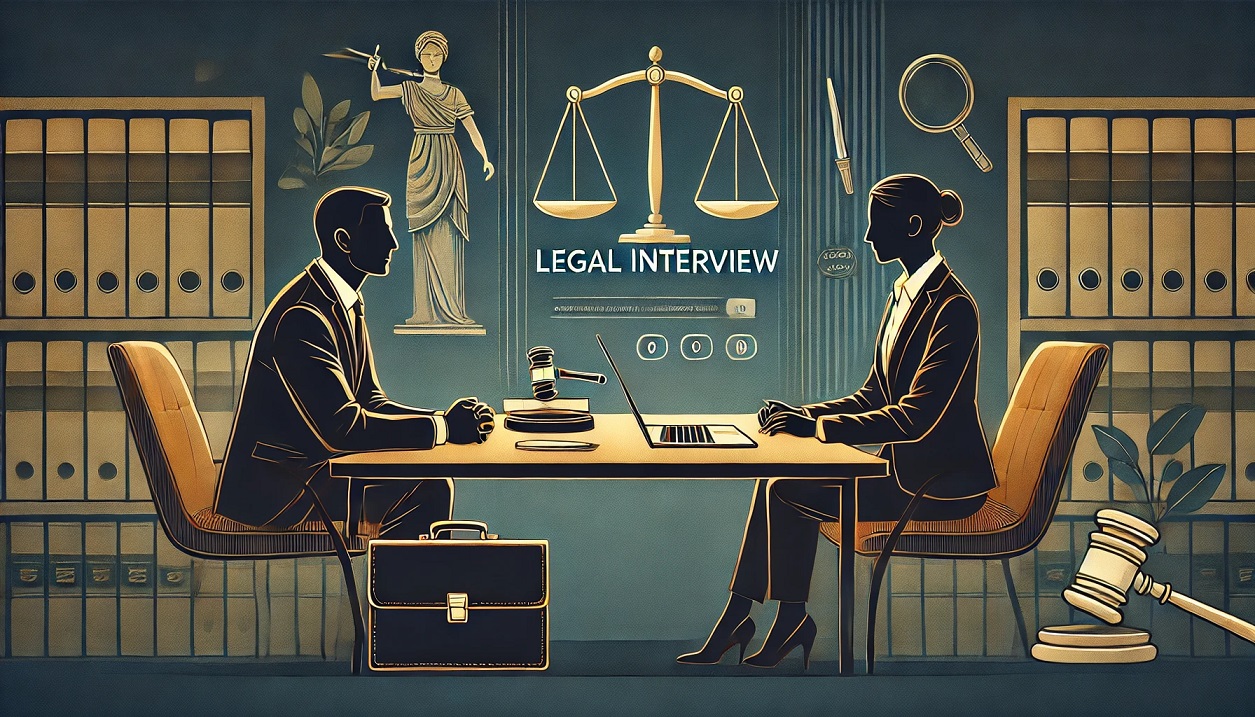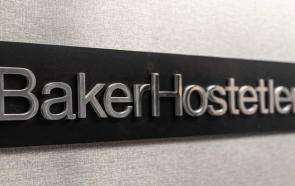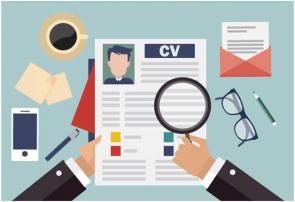
1. The Critical Importance of First Impressions
The old adage, "You never get a second chance to make a first impression," holds especially true in legal interviews. Research consistently shows that people form lasting impressions within the first few seconds of meeting someone, and this can set the tone for the entire interview.
- Before even considering answers, understand why preparation matters. Our piece on the transformative power of effective interview preparation for legal careers is a compelling call to treat preparation as the critical differentiator.
When you walk into an interview, your appearance and demeanor are the first things the interviewer will notice. A well-tailored suit, polished shoes, and minimal, tasteful accessories are essential. But it's not just about what you wear; how you carry yourself is equally important. A firm handshake, direct eye contact, and a confident smile can convey professionalism and confidence. Remember, you are entering a profession that values tradition, precision, and attention to detail—your appearance should reflect these values. To understand how BCG’s approach to legal recruiting itself is different, see What Makes BCG Attorney Search Unique: How We Stand Out Among Legal Recruiting Firms.
- If you're looking to get a head start, our companion piece on the 50 essential law firm interview questions attorneys must master breaks down the most critical questions you’re likely to face—and offers sample responses to help you structure your thinking.
Example: The Power of Presentation
Consider the case of an attorney who, despite having a stellar resume, consistently failed to advance beyond the first round of interviews. Upon review, it was noted that his attire was slightly too casual for the conservative firms he was targeting. Once he adjusted his wardrobe to reflect the firms' expectations—opting for darker suits, a more formal tie, and polished shoes—he noticed a significant improvement in how he was received. The lesson here is clear: your attire and presentation are not just superficial—they can influence the interviewer's perception of your professionalism and suitability for the role.
See Related Articles:
- Top 23 Law Firm Interview Tips for Attorneys and Law Students: How to Excel in Law Firm Interviews
- Top 12 Reasons Attorneys and Law Students Do Not Get Law Firm Interviews: Why Law Firms Are Not Interviewing You
- 40 Questions Attorneys and Law Students Should Ask in Law Firm Interviews and Questions You Can Ask the Law Firm Interviewer as Well
2. Crafting a Focused Resume: The Key to Getting Noticed
Your resume is often the first point of contact between you and a potential employer. In the legal field, where specialization is highly valued, a resume that is too broad or unfocused can be detrimental. Law firms are looking for attorneys who have honed their skills in a specific practice area and who demonstrate a clear commitment to that area.
Your resume should be a focused document that highlights your relevant experience and expertise. Avoid the temptation to include unrelated experiences or interests, as these can dilute your perceived specialization and make you appear unfocused.
- To supplement real-life examples, check out our article on common legal interview questions and suggested responses—it provides concrete ways to frame answers to even the trickiest questions.
Example: The Resume That Didn’t Work
I once encountered a candidate who was applying for a corporate law position but had a resume filled with experiences in environmental law, public interest work, and even a stint in journalism. While these experiences were impressive, they were irrelevant to the corporate law role he was targeting. Despite his strong qualifications, his resume created confusion and raised doubts about his commitment to corporate law. After revising his resume to focus solely on his corporate law experience—eliminating the unrelated work—he began receiving more interviews and eventually secured a position.
- If you're a senior attorney, our targeted piece on interview advice for senior attorneys with 10+ years of experience gives nuanced guidance on communicating humility, respect, and adaptability effectively.
Example: The Healthcare Attorney
In another instance, a healthcare attorney had an impressive resume detailing her experience in healthcare transactions. However, she made the mistake of listing extensive pro bono work and involvement in various unrelated activities at the end of her resume. While she was proud of this work, it complicated her resume, making it seem like her focus was divided. After removing these unrelated details and streamlining her resume to emphasize her healthcare law expertise, she saw an immediate increase in interview invitations.
3. Answering the Tough Questions: Strategies for Success
Legal interviews often include difficult questions designed to test your judgment, personality, and fit with the firm. How you respond to these questions can significantly impact your chances of getting an offer.
a. Why Are You Leaving Your Current Position?
This is one of the most common and critical questions you will face. Your answer needs to be carefully crafted to avoid any negative implications.- Stay Positive: Never criticize your previous employer or colleagues. Even if your reasons for leaving are related to a negative experience, focus on the positive aspects of your move.
- Focus on Growth: Frame your departure as a desire for professional growth. For example, "I’m looking for an opportunity to take on more complex cases in corporate law, which I believe your firm offers. I’m eager to continue developing my skills in this area."
Example: The Misstep
I once worked with an attorney who had left her previous firm due to a toxic work environment. In her interview, she mentioned the challenging atmosphere and difficult partners. While she was being honest, this response raised concerns for the potential employer about her ability to work well with others and her resilience under pressure. We later worked on crafting a response that focused on her desire to find a firm that offered more collaborative opportunities and better alignment with her career goals. This reframed her departure in a positive light and helped her secure a new position.
b. Why Did You Leave Your Last Job?
Similar to the question above, this is designed to probe your motivations and see if there were any issues with your previous employment.Example: The Strategic Relocation
One candidate, a healthcare attorney, relocated from Chicago to Madison, Wisconsin, because her wife, an emergency physician, took a job there. In her interviews, she framed this move as a family decision that also aligned with her professional desire to bring her healthcare law expertise to a new market. Employers appreciated the transparency and the logical reasoning behind her move, which helped her secure a position quickly.
c. Where Else Are You Interviewing?
This question, though often inappropriate, is commonly asked to gauge your marketability and interest in the firm.Be Strategic: Your answer should not disqualify you. If you’re interviewing at smaller firms, emphasize your interest in the specific practice areas or the collaborative culture they offer. If you’re targeting larger firms, focus on the more complex work or higher-profile clients that attract you.
Example: The Misjudged Response
I once advised a candidate interviewing for a small firm in a regional market. When asked where else he was interviewing, he mentioned several large, prestigious firms in major cities. The small firm immediately questioned his commitment to staying in the region and ultimately did not extend an offer. After this experience, the candidate learned to tailor his response, highlighting his genuine interest in the smaller market and the specific opportunities the firm offered.
- Not all interviews are with large firms—if you're applying to smaller or solo practices, this article on strategies for interviewing with solo practitioners emphasizes adaptability and how to align with their unique dynamics.
4. The Role of Thank You Notes: A Double-Edged Sword
Thank you notes can be a valuable tool in the interview process, but they must be handled with care.
a. The Pros: A well-crafted thank you note can reinforce your interest in the position and leave a lasting positive impression. It shows that you are courteous and genuinely interested in the opportunity.
b. The Cons: However, poorly written thank you notes can backfire. Typos, poor grammar, or overly enthusiastic language can make you seem desperate or unprofessional. Additionally, if the note is unnecessary or feels obligatory, it might not add any value to your candidacy.
Example: The Overeager Candidate
A candidate I worked with was interviewing for a position at a top law firm. After the interview, he sent a lengthy thank you note expressing his enthusiasm. Unfortunately, the note was overly effusive and included a few minor errors. The firm, which was already leaning towards another candidate, interpreted this as a sign of desperation and poor attention to detail, ultimately deciding not to extend an offer.
Example: The Strategic Thank You
On the other hand, I once assisted a candidate who was interviewing with a smaller firm that she felt might be concerned about her interest level. After a positive interview, she sent a concise thank you note that reiterated her excitement about the firm's unique culture and the specific projects they discussed. The firm appreciated her enthusiasm and followed up with an offer.
- If you’re making a lateral transition, our tips on key focus areas for lateral attorney interviews ensure you highlight your specialization, show commitment, and present yourself as ready for more complex work.
5. Navigating the Interview Process: From Screening to Final Rounds
The interview process at a law firm can involve multiple rounds, each with its own focus and challenges.
a. Screening Interviews: These are typically brief and conducted by a recruiting coordinator or junior partner. Their purpose is to determine if you meet the basic qualifications for the position.
Example: The Quick Dismissal
I once worked with a candidate who had an impressive resume but was eliminated after a screening interview. The feedback was that she seemed uninterested and unprepared. It turned out she had not done enough research on the firm and failed to ask insightful questions about the practice areas she was applying for. After refocusing her approach, she was better prepared for future interviews and eventually secured a position at another firm.
b. Callback Interviews: If you pass the initial screening, you’ll likely be invited for a series of more in-depth interviews. These are usually conducted by partners or senior associates and are designed to assess your fit with the firm’s culture and your technical expertise.
Example: The Associate’s Influence
During a callback interview, a candidate I was coaching met with several associates at a mid-sized firm. One associate was particularly influential in the hiring decision. The candidate wisely focused on building rapport with this associate, discussing shared interests in a specific area of law and how they could collaborate on future projects. This connection proved crucial, as the associate later advocated for the candidate during the hiring committee’s deliberations.
c. Final Interviews: In the final stage, you may meet with the firm’s hiring committee or key decision-makers. At this point, the firm is seriously considering you, but there may still be concerns that need to be addressed.
Example: Overcoming Doubts
I recall a candidate who, despite strong credentials, had been unemployed for several months before his final interview at a prestigious firm. The firm was concerned about the gap in his employment. During the interview, he openly addressed this, explaining that he had taken the time to further his education, complete a certification relevant to the position, and stay up to date with the latest developments in his field. His proactive approach and honest explanation helped alleviate the firm's concerns, leading to an offer.
- hat all-important opening question, “Tell me about yourself,” gets its own strategic breakdown in our article on how to answer the “tell me about yourself” interview question—learn to tailor your story to the job’s needs.
See Related Articles:
- How To Prepare A Legal Writing Sample For A Legal Job Interview
- How Attorneys Can Answer the 'Do You Have Any Questions for Me?’ in Law Firm Interviews
- Interview Preparation Techniques
6. Common Interview Mistakes and How to Avoid Them
Even the most prepared candidates can make mistakes during interviews. Being aware of common pitfalls can help you avoid them.
a. Arriving Late: Punctuality is non-negotiable in legal interviews. Arriving late signals a lack of respect for the firm’s time and can irreparably damage your chances.
Example: The Los Angeles Traffic Jam
One candidate, who was interviewing in Los Angeles, underestimated the city's notorious traffic and arrived 20 minutes late for her interview. Despite her apologies and attempts to recover, the interviewers had already formed a negative impression. She was not invited back for further interviews. The lesson here is to always plan for the unexpected—give yourself plenty of time to arrive early.
Example: The Misguided Inquiry
A candidate once asked about the firm’s response to a recent negative news story during his interview. While he framed it as a concern for the firm’s reputation, the question was perceived as confrontational and left the interviewers feeling defensive. The candidate did not receive an offer, illustrating the importance of focusing on positive, constructive questions during an interview.
7. Handling Unexpected Situations: Staying Calm Under Pressure
Interviews can sometimes take unexpected turns, and how you handle these situations can speak volumes about your professionalism and composure.
a. Handling Personal Questions: Although certain personal questions are illegal, some interviewers may still ask them, either out of ignorance or an attempt to gauge your reaction.
Example: The Marriage Question
One candidate was asked about her marital status during an interview. Rather than reacting negatively, she skillfully redirected the conversation, saying, "I prefer to keep my personal life private, but I can assure you that I am fully committed to my career and the responsibilities of this position." Her response was both respectful and professional, allowing the interview to proceed without awkwardness. Partners without business can still thrive—see this detailed guide to securing offers in interviews for additional insights.
b. Dealing with Criticism: Sometimes, interviewers may challenge your experience or qualifications to see how you respond under pressure.
Example: The Bricks Question
During an interview with a famous hedge fund manager, I was once asked a seemingly irrelevant question about how many bricks were on a building across the street. The interviewer wasn’t interested in the actual number—he wanted to see my problem-solving skills and how I handled an unexpected question. I quickly did some mental calculations, explained my reasoning, and provided an estimate. This response impressed the interviewer and led to a job offer. The key takeaway is to remain calm, think critically, and approach unexpected questions with confidence.
See Related Articles:
- Law Firm Interview Resources
- What Should I Bring to a Job Interview?
- Off-the-Record Interview Tips from Law Firm Interviewers
8. Leveraging Your Network: The Power of Connections
Networking is an essential aspect of the legal profession and can be particularly valuable during the interview process.
a. Referrals: A strong referral from someone within the firm can significantly boost your chances of getting hired.
Example: The Personal Connection
A candidate I worked with was applying to a firm where his best friend’s father was a partner. During the interview, he mentioned how much he admired the firm based on stories he’d heard growing up and expressed his long-standing interest in working there. This personal connection resonated with the interviewers, helping him stand out and ultimately secure the position.
b. Following Up: After your interviews, it’s important to follow up with your contacts at the firm. This can be a simple thank-you email that reiterates your interest in the position and your enthusiasm about joining the team.
- Finally, for inspiration on interview presence, consider Harrison Barnes’s own [how lawyers can excel in interviews]—practical wisdom that can elevate your performance from good to exceptional.
Example: The Strategic Follow-Up
Another candidate who had a positive interview experience sent a brief follow-up email to the managing partner she had interviewed with, thanking him for his time and expressing how excited she was about the prospect of working on specific cases they had discussed. This small gesture kept her top of mind and contributed to her receiving an offer.
If you’d like to connect these practical insights with resume-building advice, don’t miss Unlocking Your Legal Career Potential.
Final Thoughts: The Holistic Approach to Interviewing
Interviewing is both an art and a science. It requires thorough preparation, strategic thinking, and the ability to adapt to different situations. By focusing on your strengths, being clear and concise in your answers, and showing genuine enthusiasm for the position, you can greatly increase your chances of success.
- To decode what interviewers are really looking for, our article on cracking the code of law firm interviews lays out strategic insights—from handling relocation questions to framing your intent in sophisticated ways.
Remember, an interview is not just about proving that you are the best candidate—it's about demonstrating that you are the best fit for the firm. The strategies and examples provided in this article are designed to help you navigate the complexities of legal interviews with confidence and poise. By mastering these techniques, you can position yourself as a standout candidate and secure the position that aligns with your career goals.
- For a broader arsenal of interview tactics, our guide to the [top 23 law firm interview tips for attorneys and law students] delivers sweeping advice on everything from preparation strategies to communication techniques.
1. What are the most important legal interview skills attorneys need to stand out during a competitive attorney job search?
Answer: Strong legal interview performance depends on demonstrating judgment, maturity, and an ability to fit seamlessly into a firm’s culture. Attorneys who communicate clearly, understand the firm’s practice needs, and show humility and commitment tend to rise above other candidates. These qualities signal reliability and long-term potential. If you want personalized guidance on strengthening these skills, BCG Attorney Search can help refine your interview strategy.2. How can attorneys prepare effectively for a law firm hiring interview to increase their chances of receiving an offer?
Answer: Preparation starts with deeply researching the firm, understanding its clients, and anticipating questions about your experience and career direction. Law firms look for attorneys who know why they want to be there and how their background aligns with the firm’s work. Walking in with confidence, self-awareness, and concrete examples of your value makes you far more compelling. Many attorneys benefit from working with a legal recruiter at BCG Attorney Search to sharpen this preparation.3. Why do law firms ask behavioral questions during lateral move interviews, and how should attorneys respond?
Answer: Behavioral questions help firms evaluate how you think, how you handle pressure, and whether your work style matches their expectations. The best approach is to give concise, honest examples that highlight responsibility, ownership, and growth. Firms want proof that you can manage clients, collaborate well, and learn from challenges. A thoughtful narrative often makes the strongest impression.4. Can working with a legal recruiter improve an attorney’s interview performance during a lateral move or career transition?
Answer: Yes. A strong legal recruiter provides interview preparation, realistic feedback, and insight into what specific firms value most. This guidance can help attorneys remove blind spots, avoid common interview mistakes, and present themselves with clarity and confidence. BCG Attorney Search specializes in this type of personalized coaching for attorneys at all levels.5. Should attorneys approach BigLaw interviews differently than boutique firm interviews, and what strategies matter most?
Answer: BigLaw interviews typically emphasize technical ability, stamina, and commitment, while boutique firms often focus more on cultural fit, autonomy, and long-term interest in the practice area. In both environments, authenticity and preparation matter, but you must tailor your message to what the firm values most. Understanding these differences will help you communicate with intention and maturity. For deeper insight into how these firms evaluate candidates, explore resources at BCG Attorney Search.About Harrison Barnes
No legal recruiter in the United States has placed more attorneys at top law firms across every practice area than Harrison Barnes. His unmatched expertise, industry connections, and proven placement strategies have made him the most influential legal career advisor for attorneys seeking success in Big Law, elite boutiques, mid-sized firms, small firms, firms in the largest and smallest markets, and in over 350 separate practice areas.
A Reach Unlike Any Other Legal Recruiter
Most legal recruiters focus only on placing attorneys in large markets or specific practice areas, but Harrison places attorneys at all levels, in all practice areas, and in all locations-from the most prestigious firms in New York, Los Angeles, and Washington, D.C., to small and mid-sized firms in rural markets. Every week, he successfully places attorneys not only in high-demand practice areas like corporate and litigation but also in niche and less commonly recruited areas such as:
- Immigration Law
- Workers Compensation
- Insurance
- Family Law
- Trust and Estate
- Municipal law
- And many more...
This breadth of placements is unheard of in the legal recruiting industry and is a testament to his extraordinary ability to connect attorneys with the right firms, regardless of market size or practice area.
Proven Success at All Levels
With over 25 years of experience, Harrison has successfully placed attorneys at over 1,000 law firms, including:
- Top Am Law 100 firms such including Sullivan and Cromwell, and almost every AmLaw 100 and AmLaw 200 law firm.
- Elite boutique firms with specialized practices
- Mid-sized firms looking to expand their practice areas
- Growing firms in small and rural markets
He has also placed hundreds of law firm partners and has worked on firm and practice area mergers, helping law firms strategically grow their teams.
Unmatched Commitment to Attorney Success - The Story of BCG Attorney Search
Harrison Barnes is not just the most effective legal recruiter in the country, he is also the founder of BCG Attorney Search, a recruiting powerhouse that has helped thousands of attorneys transform their careers. His vision for BCG goes beyond just job placement; it is built on a mission to provide attorneys with opportunities they would never have access to otherwise. Unlike traditional recruiting firms, BCG Attorney Search operates as a career partner, not just a placement service. The firm's unparalleled resources, including a team of over 150 employees, enable it to offer customized job searches, direct outreach to firms, and market intelligence that no other legal recruiting service provides. Attorneys working with Harrison and BCG gain access to hidden opportunities, real-time insights on firm hiring trends, and guidance from a team that truly understands the legal market. You can read more about how BCG Attorney Search revolutionizes legal recruiting here: The Story of BCG Attorney Search and What We Do for You.
The Most Trusted Career Advisor for Attorneys
Harrison's legal career insights are the most widely followed in the profession.
- His articles on BCG Search alone are read by over 150,000 attorneys per month, making his guidance the most sought-after in the legal field. Read his latest insights here.
- He has conducted hundreds of hours of career development webinars, available here: Harrison Barnes Webinar Replays.
- His placement success is unmatched-see examples here: Harrison Barnes' Attorney Placements.
- He has created numerous comprehensive career development courses, including BigLaw Breakthrough, designed to help attorneys land positions at elite law firms.
Submit Your Resume to Work with Harrison Barnes
If you are serious about advancing your legal career and want access to the most sought-after law firm opportunities, Harrison Barnes is the most powerful recruiter to have on your side.
Submit your resume today to start working with him: Submit Resume Here
With an unmatched track record of success, a vast team of over 150 dedicated employees, and a reach into every market and practice area, Harrison Barnes is the recruiter who makes career transformations happen and has the talent and resources behind him to make this happen.
A Relentless Commitment to Attorney Success
Unlike most recruiters who work with only a narrow subset of attorneys, Harrison Barnes works with lawyers at all stages of their careers, from junior associates to senior partners, in every practice area imaginable. His placements are not limited to only those with "elite" credentials-he has helped thousands of attorneys, including those who thought it was impossible to move firms, find their next great opportunity.
Harrison's work is backed by a team of over 150 professionals who work around the clock to uncover hidden job opportunities at law firms across the country. His team:
- Finds and creates job openings that aren't publicly listed, giving attorneys access to exclusive opportunities.
- Works closely with candidates to ensure their resumes and applications stand out.
- Provides ongoing guidance and career coaching to help attorneys navigate interviews, negotiations, and transitions successfully.
This level of dedicated support is unmatched in the legal recruiting industry.
A Legal Recruiter Who Changes Lives
Harrison believes that every attorney-no matter their background, law school, or previous experience-has the potential to find success in the right law firm environment. Many attorneys come to him feeling stuck in their careers, underpaid, or unsure of their next steps. Through his unique ability to identify the right opportunities, he helps attorneys transform their careers in ways they never thought possible.
He has worked with:
- Attorneys making below-market salaries who went on to double or triple their earnings at new firms.
- Senior attorneys who believed they were "too experienced" to make a move and found better roles with firms eager for their expertise.
- Attorneys in small or remote markets who assumed they had no options-only to be placed at strong firms they never knew existed.
- Partners looking for a better platform or more autonomy who successfully transitioned to firms where they could grow their practice.
For attorneys who think their options are limited, Harrison Barnes has proven time and time again that opportunities exist-often in places they never expected.
Submit Your Resume Today - Start Your Career Transformation
If you want to explore new career opportunities, Harrison Barnes and BCG Attorney Search are your best resources. Whether you are looking for a BigLaw position, a boutique firm, or a move to a better work environment, Harrison's expertise will help you take control of your future.
Submit Your Resume Here to get started with Harrison Barnes today.
Harrison's reach, experience, and proven results make him the best legal recruiter in the industry. Don't settle for an average recruiter-work with the one who has changed the careers of thousands of attorneys and can do the same for you.
About BCG Attorney Search
BCG Attorney Search matches attorneys and law firms with unparalleled expertise and drive, while achieving results. Known globally for its success in locating and placing attorneys in law firms of all sizes, BCG Attorney Search has placed thousands of attorneys in law firms in thousands of different law firms around the country. Unlike other legal placement firms, BCG Attorney Search brings massive resources of over 150 employees to its placement efforts locating positions and opportunities its competitors simply cannot. Every legal recruiter at BCG Attorney Search is a former successful attorney who attended a top law school, worked in top law firms and brought massive drive and commitment to their work. BCG Attorney Search legal recruiters take your legal career seriously and understand attorneys. For more information, please visit www.BCGSearch.com.
Harrison Barnes does a weekly free webinar with live Q&A for attorneys and law students each Wednesday at 10:00 am PST. You can attend anonymously and ask questions about your career, this article, or any other legal career-related topics. You can sign up for the weekly webinar here: Register on Zoom
Harrison also does a weekly free webinar with live Q&A for law firms, companies, and others who hire attorneys each Wednesday at 10:00 am PST. You can sign up for the weekly webinar here: Register on Zoom
You can browse a list of past webinars here: Webinar Replays
You can also listen to Harrison Barnes Podcasts here: Attorney Career Advice Podcasts
You can also read Harrison Barnes' articles and books here: Harrison's Perspectives
Harrison Barnes is the legal profession's mentor and may be the only person in your legal career who will tell you why you are not reaching your full potential and what you really need to do to grow as an attorney--regardless of how much it hurts. If you prefer truth to stagnation, growth to comfort, and actionable ideas instead of fluffy concepts, you and Harrison will get along just fine. If, however, you want to stay where you are, talk about your past successes, and feel comfortable, Harrison is not for you.
Truly great mentors are like parents, doctors, therapists, spiritual figures, and others because in order to help you they need to expose you to pain and expose your weaknesses. But suppose you act on the advice and pain created by a mentor. In that case, you will become better: a better attorney, better employees, a better boss, know where you are going, and appreciate where you have been--you will hopefully also become a happier and better person. As you learn from Harrison, he hopes he will become your mentor.
To read more career and life advice articles visit Harrison's personal blog.






